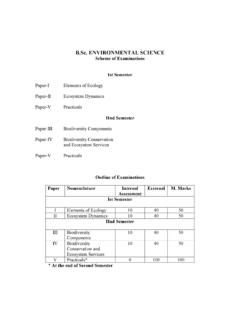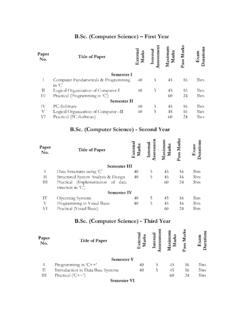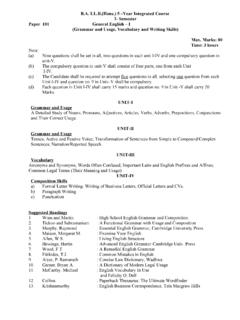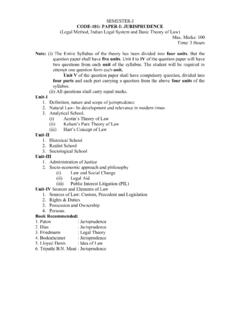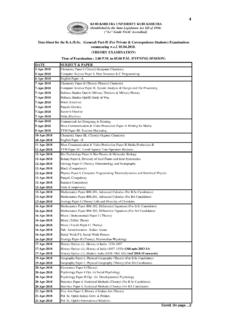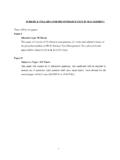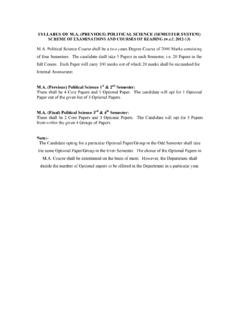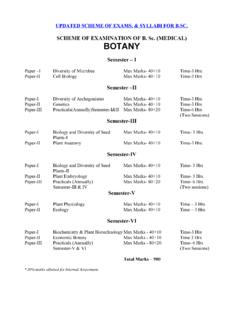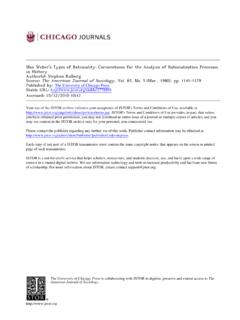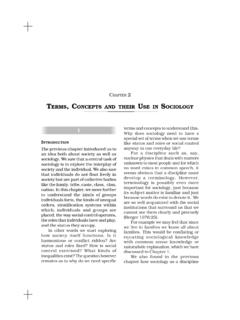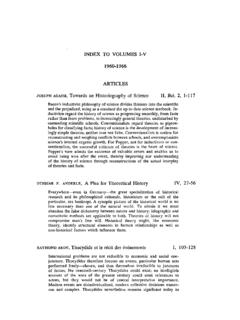Transcription of M.ED. - Kurukshetra
1 REVISED Session 2011-12 The duration of the Course leading to the Degree of Master of Education ( ) shall be one academic year. In all, there will be seven courses including a Dissertation, which will be compulsory for all students. In addition, there will be Fieldwork for all students. Theory papers will be of 100 marks each (80 marks for external evaluation and 20 marks for internal assessment). Dissertation will be of 100 marks (75 marks for dissertation and 25 marks for viva voce). Fieldwork will be of 50 marks. External and internal examiners will evaluate Dissertation and Fieldwork jointly.
2 Internal assessment will be based on one class/house test (10 marks), one assignment (5 marks) and one seminar (5 marks) in each paper. In each theory paper, the candidates will be required to attempt five questions, including one compulsory question of short notes, in three hours. Paper I Philosophical & Sociological Bases of (External)+20(Internal)=100 Paper IIAdvanced Educational Psychology. 80(External)+20(Internal)=100 Paper III Research Methodology and Statistics in (External)+20(Internal)=100 Paper IVComparative Education And Curriculum Development.
3 80(External)+20(Internal)=100 Paper VAny one of the following:(i) Special Education. 80(External)+20(Internal)=100(ii) Educational Measurement and Evaluation. 80(External)+20(Internal)=100(iii) Teacher Education. 80(External)+20(Internal)=100(iv) Computer (External)+20(Internal)=100(v) Adult and Continuing Education. 80(External)+20(Internal)=100 (vi) Environmental Education.
4 80(External)+20(Internal)=100(vii) Value Education and Human (External)+20(Internal)=100(viii) Distance (External)+20(Internal)=100 Paper VI Any one of the following:(i) Management and Administration of Education. 80(External)+20(Internal)=100(ii) Educational Technology. 80(External)+20(Internal)=100(iii) Educational and Vocational Guidance. 80(External)+20(Internal)=100(iv) Mental Hygiene and Education. 80(External)+20(Internal)=100 (v) Economics of Education and Educational Planning.
5 80(External)+20(Internal)=100(vi) Advanced Statistical Methods in Education. 80(External)+20(Internal)=100(vii)Yoga Education. 80(External)+20(Internal)=100 Paper VII Dissertation and Fieldwork 100(Dissertation)+50(Field Work)=150 1 Model Paper(For / /(Previous) Education /(Special Education) May/ Dec/ 2003 Examinations)Max. Marks:80 Time: 3 hoursNote: i)Attempt 5 questions in )Question No. 1 is )Attempt 4 more questions, selecting one question from each of the remaining four short notes on the 16(4x4) Instructions for Paper SetterPaper setter will set 9 questions in all out of which students will be required to attempt 5 questions Q.
6 No. 1 will be compulsory and it will carry 16 marks. It will comprise of 4 short answer type notes of 4 marks each to be selected from the entire syllabus. Two long answer type questions will be set from each of the four units, out of which the students will be required to attempt one question from each unit. Long answer questions will carry 16 marks I:PHILOSOPHICAL AND SOCIOLOGICAL BASES OF EDUCATION Time: 3 hours Max. Marks: 100 (External:80, Internal:20)Note: Paper setters will set 9 questions in all, out of which students will be required to attempt 5 questions.
7 Q. No. 1 will be compulsory and will carry 16 marks. It will comprise of 4 short answer type notes of 4 marks each to be selected from the entire syllabus. Two long answer type questions will be set from each of the four units, out of which the students will be required to attempt one question from each unit. Long answer questions will carry 16 marks OBJECTIVESThis paper aims at developing the following competencies: the nature and functions of philosophy of analysis, interpretation and synthesis of various concepts, proposition and philosophical assumption about educational and use of Philosophical methods in studying educational appraisal of contributions made to education by prominent educational appreciation of issue relating to social change, determinants of social change, equity and equality of educational opportunity.
8 Constitutional provisions national integration and international undertaking with the help of philosophical and sociological insights paradigms appropriately COURSE CONTENTSUNIT and function of Educational Philosophy, Relationship of Education and Schools of Philosophy Vedanta, Sankhya, Buddhism with special references to the concept of reality, knowledge and values and their educational of Indian Thinkers: - Vivekananda, Aurobindo, Tagore and II4 Western schools of Philosophy: - Idealism, Realism, Naturalism, Pragmatism, and Existentialism with special reference to the concepts of reality, knowledge and values, their educational implications for aims, contents and methods of Concept of Philosophy:- Logical analysis, logical empiricism and positive relativism.
9 UNIT- III and Nature of Educational Sociology and Sociology of Education, Relationship of Sociology and Education. 37. Education and Social Change Meaning, Nature and Factors determining Social change, Constraints of social change in India: Caste, Ethnicity, class, language, religion and regionalism. and Democracy Constitutional Provisions for Education, Nationalism and Education; Education for National Integration and International UnderstandingUNIT-IV Educational and Social Mobility as related to Social Stratification and Social Mobility.
10 As related to Social Equity and Equality of Educational Opportunities. of Socially and Economically Disadvantaged sections of society with special reference to scheduled castes and scheduled tribes, women and rural populations. ; Economic Growth and Development: Concept of education as investment; education and modernization; education in the local and global perspectives: implications of globalization for system of education. 4 SELECTED , Wade, Classics in Education, Vision Press London, , John S. Modern Philosophies of Education, Tata McGraw Hill New Delhi, , Building a Philosophy of Education, Kriager, New York, , Idealism in Education, Harper and Row, New York, , John.
